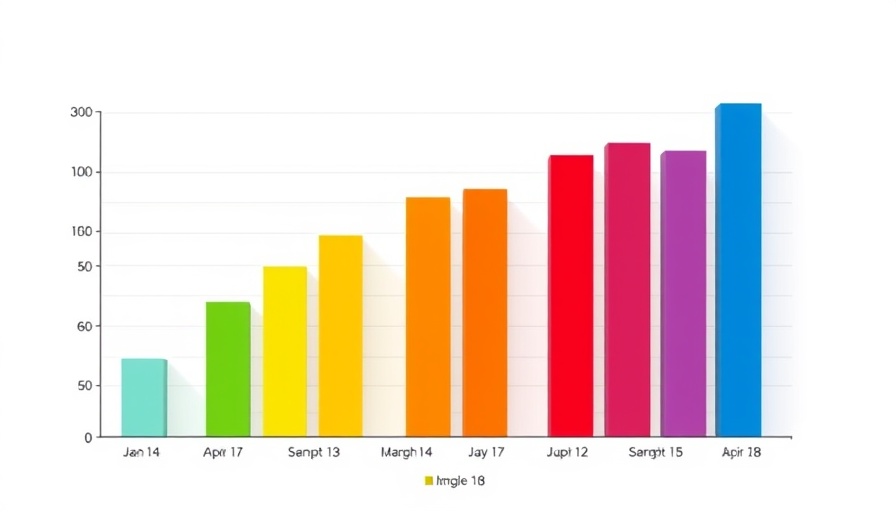
Uplifting Trends in College Mental Health: A Positive Outlook
The 2025 Healthy Minds Study, a comprehensive survey of college students conducted by the Healthy Minds Network, has revealed a positive trend over the past three years regarding mental health indicators among students. As researchers from UCLA, University of Michigan, Boston University, and Wayne State University gather insights from over 84,000 students, the findings show a noteworthy decline in rates of depression, anxiety, and suicidal thoughts.
A Glimpse at the Study's Promising Findings
In 2025, the percentage of college students reporting symptoms of severe depression dropped to 18%, a significant decrease from 23% in 2022. Similarly, the percentage of students who considered suicide fell from 15% to 11%. This reduction in mental health issues not only highlights the progress being made but also suggests that ongoing support for students is gradually making a difference.
Justin Heinze, a co-principal investigator of the study, shared, "These sustained reductions tell me this is not a blip. Whether it's distance from the pandemic, better institutional support, or something else driving the change, I think this is a promising counternarrative to what seems like constant headlines around young people's struggles with mental health."
The Role of Institutional Support in Mental Health Progress
While these findings are encouraging, they also point to the essential role that colleges and universities play in providing support. The data suggest that institutional efforts, including therapy, counseling, and digital health services, are key components in addressing student mental health needs. However, challenges remain: reports of loneliness have diminished yet still affect over half of college students, indicating that more work is needed to enhance connection on campuses.
Understanding the Impacts of Loneliness and Isolation
Feeling lonely remains a significant issue, with 52% of students still reporting experiences of high levels of loneliness. As the Healthy Minds Study has shown, social connections and a sense of belonging are vital components of mental wellness. Marsha Snyder, a mental health expert, explains that social isolation can reverse any positive trends achieved: “Even small feelings of detachment can stagnate or hinder efforts toward overall mental well-being.”
Additionally, disparities persist among different demographic groups. While college students overall show signs of improvement, targeted support for underrepresented students remains crucial, as they often experience higher stress levels and lower access to mental health resources.
Challenges in Accessing Mental Health Resources
Despite the positive findings, barriers to accessing mental health care still exist. Many students cite time constraints, financial challenges, and a preference for self-reliance as primary reasons for not seeking help. About 37% of students reported receiving therapy or counseling within the past year, while 60% of those reporting anxiety or depression sought clinical help. Thus, greater awareness of available services and encouragement to utilize these services is essential.
Future Directions: Building Stronger Connections
The results of the 2025 Healthy Minds Study highlight ongoing opportunities for improvement, especially regarding fostering connection among students. Robin Glover, associate provost for student affairs at Harvard, emphasizes the need for universities to create environments that minimize feelings of isolation and promote community engagement. She suggests that implementing peer support programs can be a practical step in addressing these issues.
Moreover, educational initiatives can help students recognize that many mental health services are available at no cost, enhancing utilization without the burden of financial strain. By engaging in strategic outreach and creating supportive community initiatives, universities can ensure that every student feels valued and connected.
Conclusion: The Journey Ahead
The 2025 Healthy Minds Study indicates that while substantial progress has been made over the last few years, colleges and universities must recognize that mental health remains an ongoing concern. By prioritizing community health and wellness programs and dismantling access barriers, educational institutions can continue to cultivate an environment where students thrive mentally and emotionally.
The journey toward optimal health and wellness on campuses is a shared responsibility, and as the dialogue continues, it's essential for stakeholders at all levels to remain committed to supporting the mental health needs of students. Take action today by exploring available resources at your local university or community health center, and engage in conversations surrounding mental health to foster a more connected, supportive educational landscape.
 Add Element
Add Element  Add Row
Add Row 




Write A Comment